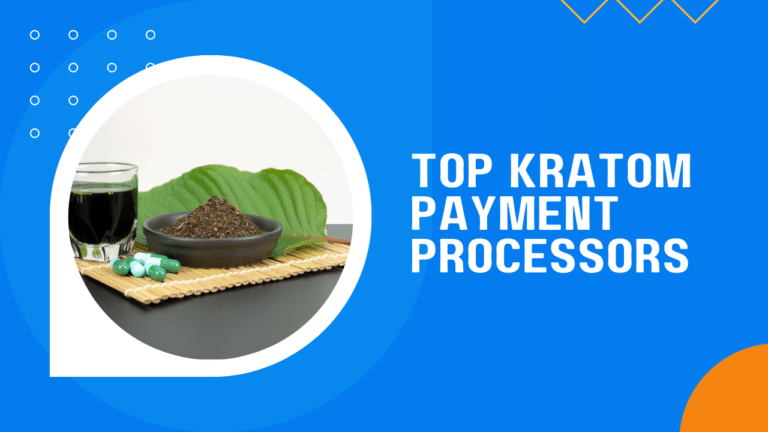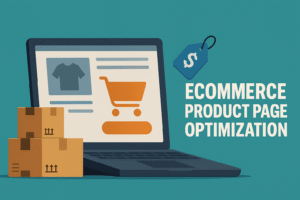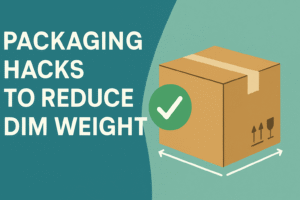In the thriving kratom industry, finding a reliable and secure payment processing solution is crucial for businesses to flourish. As a kratom vendor, navigating the complex landscape of high-risk merchant accounts and e-commerce platforms can be challenging.
This comprehensive guide delves into the world of kratom-friendly payment processors, empowering you to overcome the hurdles, like those in the CBD industry face in finding a payment processor.
We’ll explore the legal status of kratom and its implications on payment processing, while also shedding light on the challenges that kratom businesses face in securing trustworthy merchant services.
Equipped with insights on transaction fees, chargeback protection, risk management, and more, this guide will help you compare the top payment processors in the market and identify the perfect fit for your unique needs.
Stay ahead in the competitive kratom market by harnessing the power of secure, seamless payment processing solutions.
Understanding the Legal Status of Kratom
In the United States, the legal status of kratom varies across different states and jurisdictions. While the Drug Enforcement Administration (DEA) has not classified kratom as a controlled substance on the federal level, some states and local governments have imposed their own regulations, ranging from outright bans to age restrictions.
At the time of writing, kratom is legal in most states, but there are a few exceptions. The following states have banned kratom or have specific regulations in place:
- Alabama: Kratom is a Schedule I controlled substance.
- Arkansas: Kratom is a Schedule I controlled substance.
- Indiana: Kratom is a synthetic drug and illegal.
- Rhode Island: Kratom is a Schedule I controlled substance.
- Vermont: Kratom is a regulated drug and illegal.
- Wisconsin: Kratom is a Schedule I controlled substance.
In addition to the states mentioned above, several local jurisdictions, such as cities or counties within legal states, have also imposed bans or restrictions on the sale, possession, or use of kratom. For instance, kratom is banned in San Diego, California, and Sarasota County, Florida.
Some states have also enacted age restrictions on the purchase and possession of kratom, typically requiring buyers to be at least 18 or 21 years old. It is essential for kratom businesses to stay informed about the legal status of kratom in their target markets to ensure compliance with local laws and regulations.
The varying legal status of kratom in the United States can impact payment processing options for kratom businesses. Some payment processors may be reluctant to work with kratom vendors due to the uncertain regulatory environment and the associated risks. As such, it is crucial for kratom businesses to partner with payment processors that understand the unique challenges of the kratom industry and are willing to provide tailored solutions to accommodate their needs.
Challenges Kratom Businesses Face in Securing Payment Processing
Navigating the world of payment processing can be particularly challenging for kratom businesses. Due to the legal complexities and risk factors surrounding the kratom industry, securing a reliable payment processor becomes a crucial, yet difficult, task. Here, we outline the top challenges kratom vendors face when trying to secure payment processing solutions.
1. Traditional banks’ reluctance to work with kratom businesses
Many traditional banks and financial institutions are wary of working with businesses operating in industries with legal ambiguities or higher risk profiles. Since the legal status of kratom varies by jurisdiction, banks often view kratom businesses as high-risk merchants. This reluctance may result in limited access to banking services, including payment processing solutions.
2. High-risk classification
Kratom businesses are often classified as high-risk due to various factors, such as uncertain regulations, a higher likelihood of chargebacks, and potential reputational risks. High-risk classification can make it more difficult to find a payment processor that is willing to work with kratom vendors, and when they do, they might face higher processing fees and more stringent requirements.
3. Limited availability of processing options
The limited number of payment processors willing to work with high-risk businesses like kratom vendors results in fewer options to choose from. This can lead to kratom businesses having to settle for processors with less-than-ideal terms, higher fees, or inadequate customer support.
4. Increased scrutiny and compliance requirements
Kratom businesses may be subject to increased scrutiny from payment processors and regulatory bodies. This can result in more stringent compliance requirements, such as frequent reporting and documentation. Failure to meet these requirements could lead to account suspension or termination.
5. Chargeback risks and fraud management
High-risk businesses, including kratom vendors, often face a higher likelihood of chargebacks and fraudulent transactions. As a result, securing a payment processor that offers robust chargeback protection and fraud management tools becomes essential to ensure the sustainability of the business.
In conclusion, kratom businesses face unique challenges when it comes to securing reliable payment processing solutions. To overcome these obstacles, it’s important for kratom vendors to be well-informed about the legal landscape, research available payment processors, and develop strategies to mitigate risks and maintain compliance. By doing so, they can build a strong foundation for their business and support their customers’ payment needs.
Criteria for Choosing a Payment Processor for Your Kratom Business
As a kratom business owner, finding a payment processor that understands and supports your industry’s unique needs is crucial for your success. With the top semantically and lexically related entities in mind, here are the key criteria to consider when choosing a kratom-friendly payment processor:
- Compatibility with high-risk businesses: Since kratom is considered a high-risk industry, it’s essential to select a payment processor that specializes in serving high-risk merchants. These processors are more likely to offer tailored solutions and support that cater to the specific requirements and challenges of the kratom market.
- Clear and reasonable fee structure: Processing fees can vary significantly among payment processors. Look for a provider that offers a transparent fee structure, including transaction fees, setup fees, and any additional charges. Compare the costs with other providers to ensure you’re getting a competitive rate without sacrificing quality and security.
- Robust security measures: Security is a top priority for any online business, particularly those in high-risk industries. Ensure that your chosen payment processor complies with the latest security standards, such as PCI DSS, and employs advanced fraud prevention tools to protect your business and customers’ sensitive information.
- Multiple payment options: Offering various payment methods, such as credit and debit cards, e-checks, and digital wallets, can help you cater to a broader customer base and increase sales. Choose a payment processor that supports a wide range of payment options to make transactions seamless for your customers.
- Reliable customer support: Quality customer support is invaluable when dealing with payment processing issues. Opt for a provider that offers responsive and knowledgeable customer support through multiple channels, such as phone, email, and live chat, to ensure prompt assistance when you need it most.
- Seamless integration with your existing e-commerce platform: To minimize disruptions to your business operations, select a payment processor that can be easily integrated into your current e-commerce platform. This will help you maintain a streamlined and user-friendly checkout process for your customers.
- Reputation and experience: Research the reputation and experience of potential payment processors within the kratom industry. Positive reviews, testimonials, and case studies from other kratom businesses can provide valuable insights into the processor’s reliability, expertise, and ability to support your specific needs.
By considering these criteria, you can make a well-informed decision when choosing the right payment processor for your kratom business, ensuring a secure, seamless, and positive experience for both you and your customers.
Top Payment Processors for Kratom Businesses
Finding a reliable and secure payment processor is crucial for kratom businesses, especially given the industry’s high-risk classification. To help you navigate this landscape, we’ve compiled a list of top payment processors that cater to kratom vendors. These providers offer specialized merchant services, robust security measures, and seamless integration with popular e-commerce platforms.
1. PaymentCloud
PaymentCloud is a popular choice for high-risk businesses, including kratom vendors. This processor offers tailored solutions, competitive rates, and excellent customer support. With its robust fraud prevention tools and easy integration with most e-commerce platforms, PaymentCloud is a go-to choice for kratom businesses looking for a secure and dependable option.
2. SMB Global
SMB Global is a high-risk merchant account provider offering tailored solutions for kratom businesses. With a focus on risk management, SMB Global provides advanced fraud detection tools, chargeback mitigation, and multi-currency support. Their personalized approach and seamless integration with popular e-commerce platforms make them a top choice for kratom vendors.
3. eMerchantBroker (EMB)
eMerchantBroker is another trusted provider catering to high-risk businesses. EMB offers custom merchant account solutions for kratom vendors, along with competitive rates and dedicated account managers. Their expertise in the high-risk space, combined with a wide range of payment processing options and excellent customer support, makes EMB a strong contender for kratom businesses.
4. Instabill
Instabill has a long history of working with high-risk merchants, including kratom vendors. They provide secure payment gateways, fraud protection, and competitive fees. Instabill’s extensive network of domestic and international banking partners allows kratom businesses to find the best possible merchant account solution for their unique needs.
Additional Tips for Kratom Businesses Seeking Payment Processing
As a kratom business owner, securing a reliable payment processor is essential for your venture’s success. But it’s equally important to be proactive in ensuring smooth payment operations. Here are some additional tips to help you navigate the world of payment processing:
1. Stay Informed about Kratom’s Legal Status
The legal status of kratom varies across different states and countries. It’s crucial to stay updated on any changes in legislation that may affect your business. Regularly check for updates and news regarding kratom regulations to ensure your business remains compliant.
2. Maintain Clear Communication with Your Payment Processor
Establishing a strong relationship with your payment processor is key to addressing potential issues early on. Keep an open line of communication with your provider and inform them about any significant changes in your business. This proactive approach can help you avoid disruptions in payment processing.
3. Diversify Payment Options
To reduce reliance on a single payment processor, consider diversifying your payment options. Offering multiple payment methods, such as e-wallets, cryptocurrencies, and alternative payment platforms, can help you maintain a steady flow of transactions in case of any issues with your primary processor.
4. Prioritize Security and Fraud Prevention
As a high-risk business, it’s crucial to implement robust security measures to protect both your business and your customers. Ensure that your payment processor offers advanced fraud prevention tools, SSL encryption, and complies with industry security standards, such as the Payment Card Industry Data Security Standard (PCI DSS).
5. Optimize Your Checkout Experience
To improve customer satisfaction and reduce cart abandonment rates, streamline your checkout process. Make sure your payment processor integrates seamlessly with your e-commerce platform, allowing for a smooth and user-friendly experience. Offer a guest checkout option, minimize form fields, and clearly display accepted payment methods to facilitate transactions.
6. Monitor and Manage Chargebacks
Chargebacks can be costly for high-risk businesses. Work closely with your payment processor to monitor and manage chargeback disputes. Implement best practices, such as clear refund policies, accurate product descriptions, and responsive customer support, to minimize chargeback occurrences.
By following these tips and staying vigilant about changes in the kratom industry, you’ll be better equipped to maintain reliable payment processing for your business. With a secure, kratom-friendly payment processor in place, you can focus on growing your business and providing top-notch products to your customers.
Conclusion
In conclusion, securing a reliable and secure payment processor is essential for the success of any kratom business. As a high-risk industry, kratom vendors face unique challenges in finding compatible merchant services that cater to their specific needs. By staying informed about the legal status of kratom, understanding the top semantic and lexical entities such as e-commerce platforms, risk management, and transaction fees, and comparing the features and services offered by various kratom-friendly payment processors, business owners can overcome these challenges and ensure a seamless transaction experience for their customers.
Always prioritize security measures and fraud prevention, and maintain clear communication with your chosen payment processor to build a lasting partnership. Don’t forget to diversify your payment options and stay adaptable to the ever-changing landscape of the kratom market. With a solid foundation and the right payment processor, your kratom business will be well-equipped to thrive in the competitive online marketplace.









